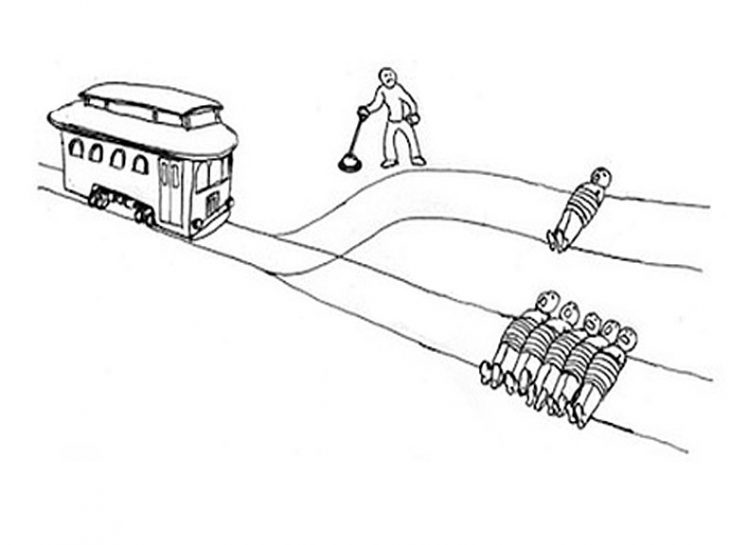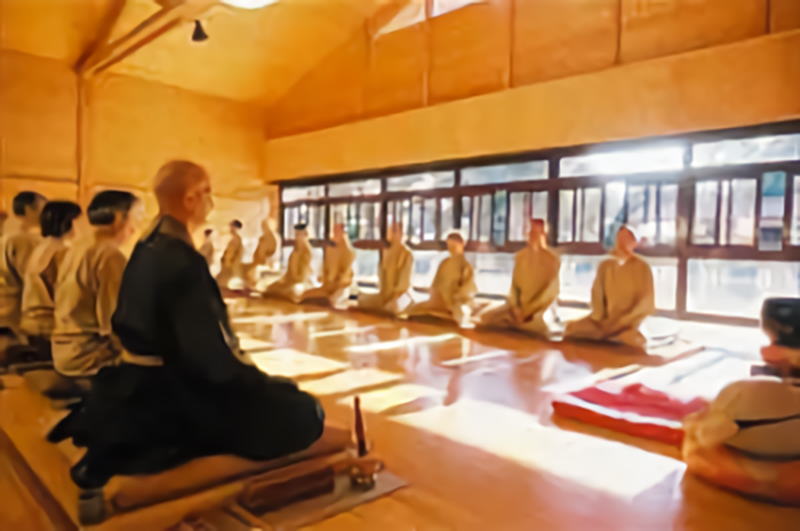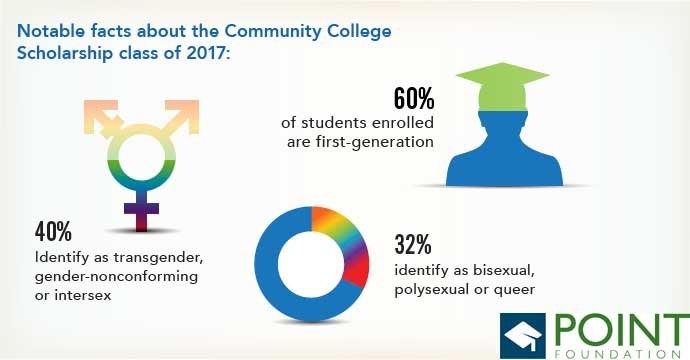Superficially, India and America are a world apart. Literally on the opposite sides of the planet. Yet, I have never felt out of place in the US, unlike "ABCDs" I suppose. :) Why? Well, look a little closer and you'll see that India and America played key roles in creating each other's very identity!
America was "discovered" by lost Europeans who were desperate to find a sea route for spice trade with India and ended up mislabeling Native Americans as "Indians." The Black Civil Rights movement led by Martin Luther King Jr., a huge part of the tussle of US identity, was directly inspired by the life of Mahatma Gandhi and his political philosophy of Satyagraha. Likewise, White nationalism, also a huge part of the tussle of US identity, also owes a lot to myths of "racial purity" of Aryans, a once innocuous Sanskrit endonym for Indians. Conversely, modern India's Constitution owes a great deal to the Constitution of the US, as I will elaborate soon.
Basically, there would be no America as we know it today without India. And there would be no India as we know it today without America.
So, in this hopefully amusing--but sometimes weighty--memoir I draw analogies and contrasts between these two nations that I now call home. Yes, there will be many generalizations, stereotypes, and derision over some stuff on both sides. But there will also be praise, admiration, and celebration of some stuff on both sides. With that prelude, I share some key similarities and differences between India and America that have stood out for me in my experiences.
Key Similarities
1. Geographic: Mind-bogglingly Large, Varied, and Beautiful!
Obvious one. The US and India are the 4th and 7th largest countries in the world by land area, with the US being 3x as large as India. But the variety and beauty of geography is immense in both countries: snow-capped mountain ranges, large plateaus, large plains, long rivers and large lakes, long coastlines and many beaches, sandy deserts and arid semi-deserts, dense forests, swamps and mangroves, volcanoes, tropical island paradises--you name it, both have it. It will take many years, if not decades, to visit all the major touristy spots. I know because I have plans/hopes of doing so in my lifetime. :)
2. Constitutional: Federal Secular Democratic Republic
Another obvious one. America's is the oldest active Constitution in the world; India's is the largest. In fact, America's Constitution heavily influenced India's, as it did many other nations' too. This includes at least the following. The abolition of monarchies and aristocracy to establish a republic. A rigorous separation of powers into 3 branches: Executive-Legislature-Judiciary, with carefully thought out checks and balances. Equal rights and due process for all citizens before the law. A democratic government "of the people, for the people, and by the people." Organization of a large and diverse nation into a federal "union of states" with a clear separation of authority. And finally, secularism with no role for religion in government. Both nations have stood the "test of time" in upholding these Constitutional values and avoided dictatorships and military coups.
3. Political: Free Speech and Mockery of Politicians
Freedom of thought/speech/expression is central to both nations' identities and protected in their Constitutions. There is even a book titled "The Argumentative Indian" and I too have written about the millennia of debates among Hindu religions. America's First Amendment is often touted as the paragon of free speech rights. But a flipside is that hate speech is legal in the US. This disproportionately hurts minorites and/or marginalized groups, especially Jews, Blacks, LGBTQ+ people, and Muslims. India has stricter laws against hate speech on various grounds (e.g., religion, race, language, etc.) but they are sometimes abused by politicians to harass political opponents.
Speaking of politicians, mocking them with political satire is a vibrant industry in both nations! When politicians try to aggrandize power inappropriately or hypocritically, they ought to be mocked. :) Strangely, people from some European democracies, e.g., Germany or Sweden, seem to be more reticent on this front. But the contrast with the muzzling of people in Communist or other totalitarian regimes, e.g., China or Russia, is sad to me. I can never fathom living in fear of speaking out against one's government, let alone not mocking those with power.
4. Societal: Obsession with Movies, TV Shows, Sports, and Celebrities
Hollywood and Bollywood are the largest film industries in the world by revenue and volume, respectively. Fans in India do crazy stuff in "devotion" to film celebrities. Turns out it is the same in America! As if movies are not enough, both nations have tons of TV shows with high TRPs--soap operas, comedies, "reality" TV, dance, cooking, religious shows--you name it, both have it. And in 10+ languages too in India! I will admit I watch a lot of movies and streaming shows from both nations. :) The sports industry is also big business in both nations. India is the big brother of cricket, the main sport obsession there. Americans are obsessed with football, basketball, and baseball. But I don't care for any of these 4 sports and like tennis instead.
5. Societal: Obsession with Religiosity and Religious Charlatans
Religion is big business in both nations, almost pathologically so for secular democracies. I too was religious as a kid in a Hindu Brahmin family, but I became a freethinker as my interest in science grew. Overt religiosity is common in India and everyone is showy: Hindus, Muslims, Sikhs, Christians, Jains, Buddhists, and Zoroastrians. There is also a cottage industry of charlatans who exploit peoples' blind faith to accrue money and power. Some get busted for nasty crimes ranging from fraud and extortion to rape and murder. Many politicians and religious leaders are in bed with each other due to votebank politics, undermining secularism.
Then I came to America, the land of huge scientific and technological breakthroughs. I thought there'd be more freethinkers here. Instead, I see a gazillion churches everywhere. Droves of Evangelicals and Mormons run around with Bibles, proselytizing. Jews wear skull caps instead of Muslims. Hilltops have giant crosses. Tens of millions believe in creationism instead of science. Some Senators believe in talking snakes. Charlatans preach "prosperity gospels" to swindle gullible followers. Many politicians and religious leaders are in bed with each other due to votebank politics, undermining secularism. OK I am just repeating myself now. :D
6. Societal: Systemic and Societal Discrimination but Unity in Diversity
Discrimination is pervasive in both nations, both due to age-old inequities and new issues. The stranglehold of the millennia-old Hindu caste system is still strong in India (but reducing in urban areas). South Asian Muslims, Christians, and Sikhs too have their own forms of casteism. Although India's Constitution boldly outlawed caste discrimination, many Dalits, tribes, and some so-called lower castes still occasionally face illegal discrimination and hate crimes by casteist extremists. Homosexuality was criminalized until 2018. Many women suffer pervasive patriarchical oppression and "rape culture." More recently, hate crimes against Muslims has gone up due to the rise of Hindutva nationalism. Hate crimes are rarely prosecuted because police are stretched thin and often corrupt. The judiciary is overburdened and slow. Yet, in spite of all these struggles, the sense of "unity in diversity" remains strong in India. And a thriving culture of social activism for human rights for all is alive and well.
In America, Black people were enslaved for centuries. After the American Civil War, they were ostensibly made "equal" but segregated and terrorized by both vigilantes and White supremacist groups for decades. Blacks still face pervasive systemic discrimination and casual racism today. Native Americans faced centuries of ethnic cleansing and genocides. Hispanic/Latino people, LGBTQ+ people, women, some sub-groups of Asians and even Whites--all faced systemic discrimination too. Rape culture is rampant here too. Thankfully things have been improving for all groups in the last few decades. More recently, there is a resurgence of White nationalism and hate crimes, especially against Jews. Thankfully, both police and judiciary are efficient here (but not perfect). And in spite of all these struggles, America's motto too emphasizes unity in diversity. And here too a thriving culture of social activism for human rights for all is alive and well.
Key Differences
1. Geographic: Population Density
Obvious one. India has 4x the population of the US, which means its density is 12x! To me everywhere in India feels like people are living on top of each other. :) The traffic jams of Los Angeles have nothing on those of Delhi. Believe me, Delhi will show you what it feels like to have life energy sucked out of you, even as you are choking on smog! In contrast, most of America lives in a more spread out fashion. Air and water quality is much better in most places. Almost everyone prefers more privacy and breathing space. OK, except for those crazy Manhattan types. :D
2. Technological: Developed vs Developing
Another obvious one. The US is one of the richest nations in the world and the birthplace of many revolutionary technologies, including the airplane, modern computers, and the Internet. Indeed, one the biggest changes for me was how Internet connections went from slow and capacity-capped to fast and unlimited capacity. Quality of life is much better in such a developed nation due to better electronics, appliances, transportation, utilities, and logistics. For instance, power cuts were a routine part of life in India. But I've seen power cuts only 4 times ever in the US. Thanks in large part to Capitalism, the US is also home to many of the world's largest and most innovative companies, especially in software, biotechnology, (aero)space, defence, and other engineering. All this helps attract immigrants from all over the world. Despite all its troubles, the US remains the world's premier "land of opportunity." I think it will remain so for the foreseeable future.
3. Economic: Mixed Socialism-Capitalism vs Runaway Capitalism
India has a mixed economy combining elements of both Capitalism and Socialism. India used to be very Socialist but after a humiliating near-insolvency, the failures of Nehruvian Socialism were recognized and more Capitalism was adopted. That said, one outsized positive impact of Nehruvian Socialism is the world-renowned federally owned higher education system: IITs, IIMs, NITs, IISc, and AIIMS. Most Indian-origin faculty in America's STEM academia and many in industry are from that system, including me. :) There is near-universal support for government investment in education in India. Likewise, there is near-universal support for government-run free/afforable healthcare for the poor, even if its quality is lower than private hospitals.
While Capitalism has helped America a lot, it has been wreaking havoc in education and healthcare. State governments have been steadily defunding academia, while federal investment has failed to keep pace with growth. College student loans are debilitating many Americans and many are not able to afford college anymore. Facing budget shortfalls, American universities inevitably turn to more self-paying international students, perpetuating a vicious cycle that is pricing Americans out of their own higher education system. K-12 schools fare worse, with many teachers paid so low they need to work two jobs. These are all classic symptoms of runaway Capitalism. Likewise, the US healthcare system is crazy expensive, with little options for the poor. Only deep government investment in universal up-to-college education and public healthcare can fix this mess. But many Americans live in denial of Capitalism's failures on these issues. :-/
4. Societal: Collectivism vs Individualism
Another key difference I've seen is that Indian society over-prioritizes collectivism, while American society over-prioritizes individualism. Most Indian parents exert too much control over their children's lives, including career and marriage. Often it stifles or even negates individual creativity and initiative. Things are changing slowly though, especially in urban areas. In contrast, most American parents are hands off on their kids' choices on both career and marriage. People are not as nosy about other people's private lives. America's level of celebration of individual "liberty" is perhaps unparalleled in human history. In fact, the distance and space America offered me for self-reflection, away from India, played a big role in my own coming out process. New cultural movements such as Pride also help bridge the individual-collective gap in positive ways.
The above said, a major flipside of the individual-first culture is that many Americans have rather callous attitudes toward poor people. Systemic factors that destroyed social mobility and keep people trapped in poverty--e.g., the decimation of US manufacturing or the high cost of college I mentioned earlier--are disproportionately misrepresented as an individual's "failure." Likewise, many in America still live in denial of the urgency of combating human-caused climate change. Such me-me-me attitudes are not conducive to tackling a problem that all of humanity must tackle collectively by making equitable sacrifices. :-/
5. Societal: Handling of Historical Inequities and Constitutional (Non-)Ossification
Finally, one of the biggest differences between the two nations is in their attitudes toward affirmative action to redress the historical inequities I listed earlier. The Indian Constitution mandated an extensive system of quotas to help Dalits, tribes, and many so-called lower castes, a strong "positive discrimination" form of affirmative action. They were later expanded to cover more so-called middle caste groups. But the system was abused due to votebank politics. Resentment grew among so-called upper castes. Ultimately, income caps were imposed to bar the rich among lower castes, while a new quota was added to help the poor among upper castes and/or non-Hindus. Overall, there is no doubt that India's quota system has uplifted tens of millions of lower castes and/or poor people out of destitution.
In contrast, there is not much support in the US for quotas or any strong affirmative action, even in ultra-liberal California. This is despite the systemic disadvantages faced by, and absymally low representation of, Blacks, Native Americans, and Hispanics/Latinos in higher education, industry, and government, as well as rising despair among poor people of all races, including Whites, leading to a tragic epidemic of opioid addiction. There is a widespread delusion in the US that it is an ideal "meritocracy." But from what I've seen, the truth for many groups is closer to a poignant line from an old Tamil song: The world gets you a peacock, breaks its leg, and then asks it to dance. :-/
In my opinion, the US will benefit from learning more from India about equitable affirmative action just as India will benefit from learning more from the US about meritocratic practices. After all, "systemic racism" in the US is a form of caste system too. But change will not be easy because of--once again--its Constitution! Amending the US Constitution is vexed due the political polarization here. For instance, there have been 104 amendments to India's Constitution but only 27 to America's even though the latter document is 3x older than the former! I hope less political polarization, more equitable prosperity, and more empathetic policy making can help heal age-old societal wounds in both nations as they march toward a better future for all.









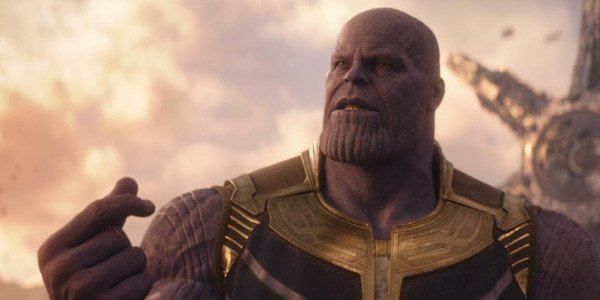

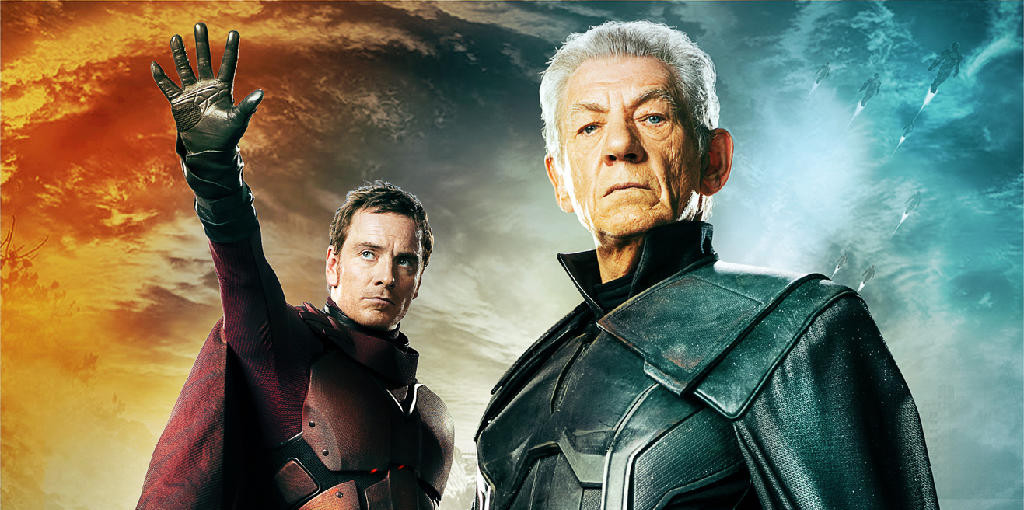




/cdn.vox-cdn.com/uploads/chorus_image/image/49714815/apocalypse.0.jpg)
